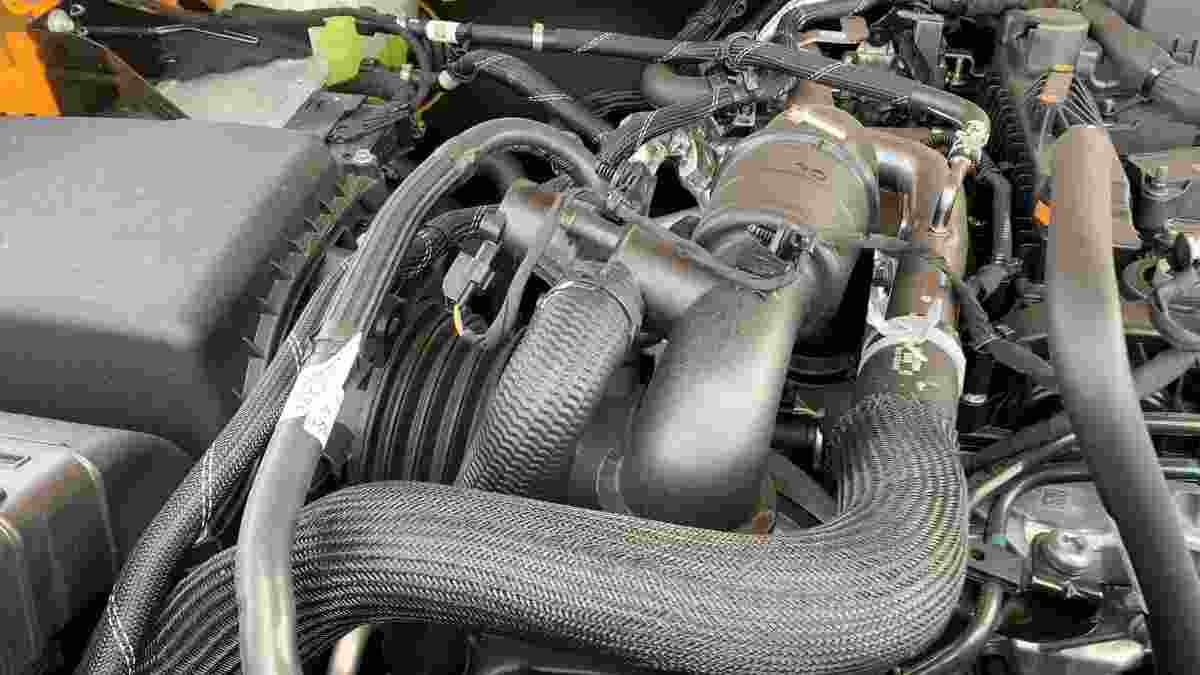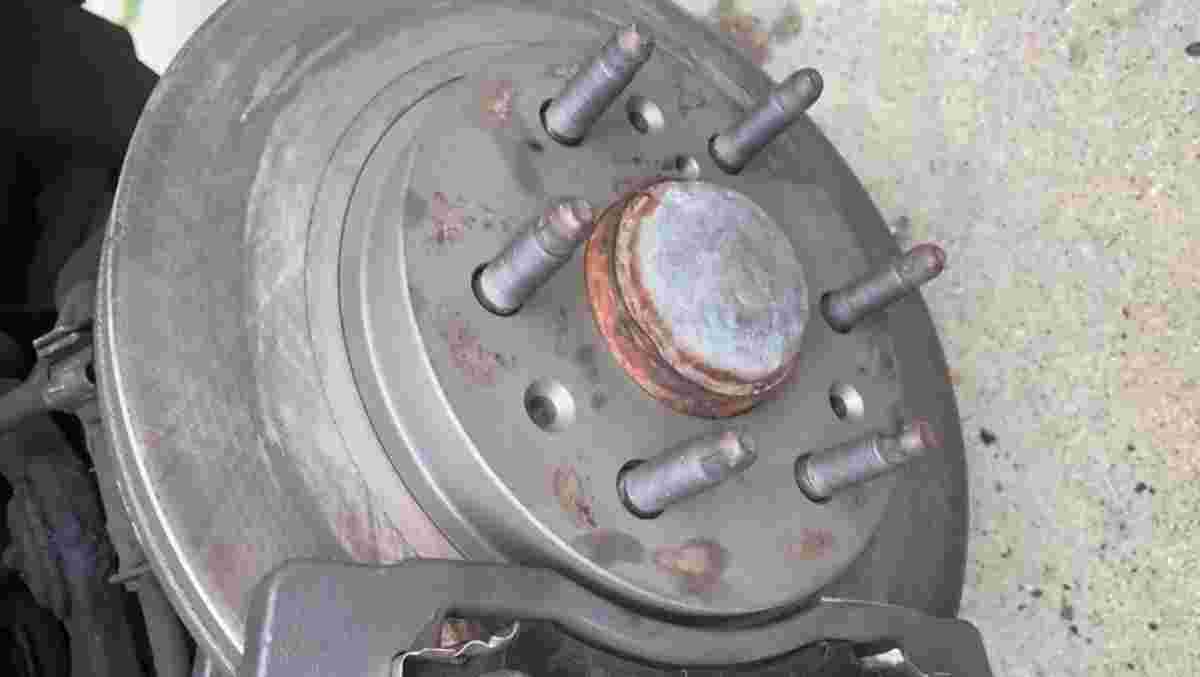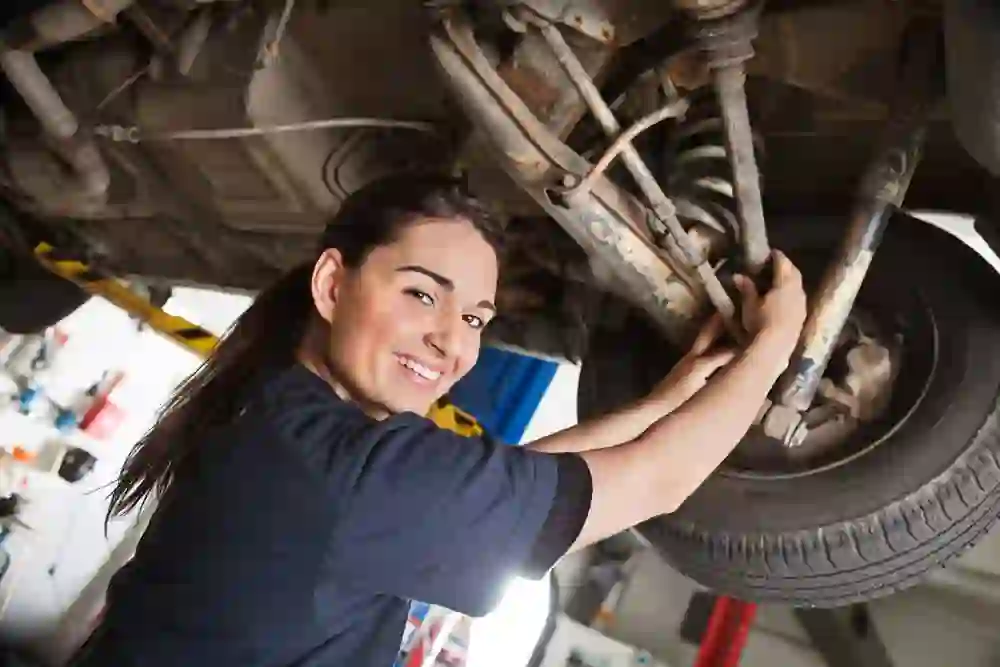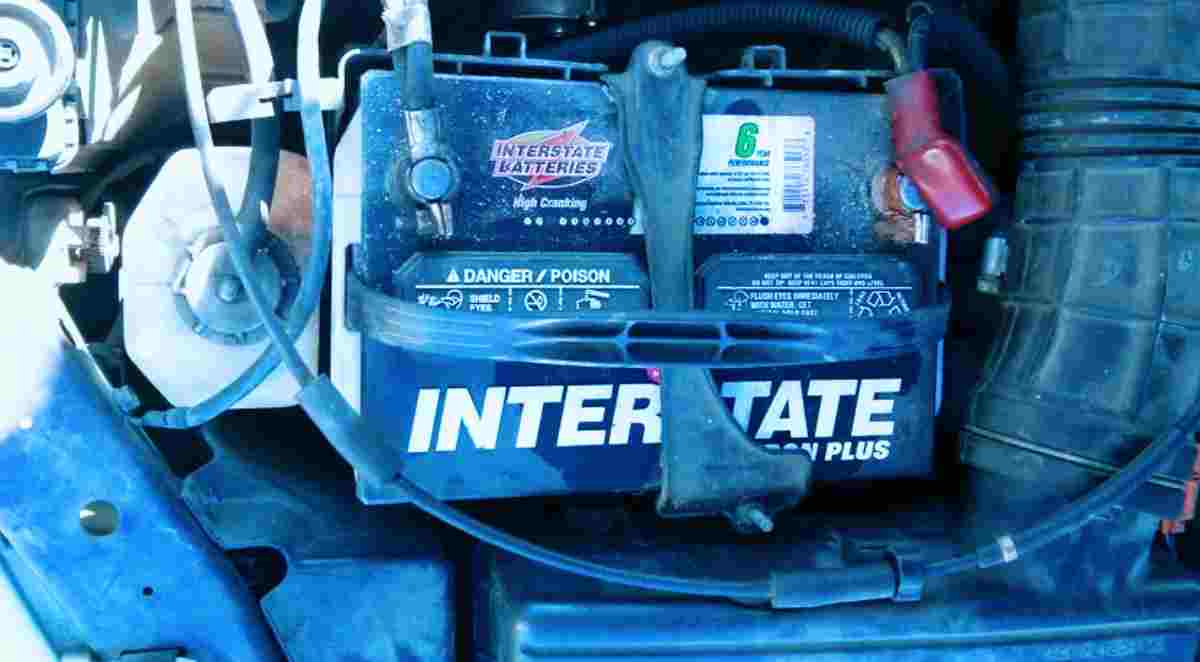If you experience an engine tapping noise after warm up, this guide has been contributed by a mechanic to help you solve the problem.
Usually, you will not hear the tapping noise when the car is cold—it comes up after about 5-10 minutes of driving. It sometimes sounds like a major exhaust leak, and the tapping frequency increases with RPM and may get even louder the longer you drive.
Your car will stop tapping if you park and let it sit for 30-60 minutes. Unfortunately, this causes inconvenience since you don’t have to stop driving every now and then. The tapping noise will also come back—the solution is to identify and fix the problem.

Engine tapping noise after warm up: causes and how to fix
You may think you have a bad oil pressure sensor or just a worn oil pump, especially if your gauge reads ~10-15 psi on cold start before increasing at idle, up to ~40 psi at upper RPMs. You could be right, but professionally, the reasons below could be responsible for the tapping or ticking noise after warm up:
-
Low oil levels
If you have a low oil level in your engine, the valve train parts will make ticking sounds since the components are not getting sufficient lubrication. Usually, a leak somewhere in the car is responsible for the low oil level.
Bad or worn gaskets or seals also cause oil loss, which makes the engine overheat—your car engine requires oil to stay cool.
Sometimes, the problem could be traceable to the hydraulic lifters, which are part of the valve train. So, when your engine is cold, oil drains from the lifters into the oil pan due to gravity. However, when you start the engine, it warms after some time, causing the ticking noise to return as the lifters are moving without oil.
If there’s no oil to circulate on top of the motor where the lifters are located as the engine heats, the engine will warm up and can’t pump sufficient oil.
How to fix
The solution is to get a fresh oil change to stop the engine tapping sound whenever you drive for some time. New oil replacement gets rid of any sludge contributing to poor or lack of oil circulation.
Your mechanic needs to also look out for an oil leak before replacing the oil. Otherwise, the problem will return.
-
Fuel injection problem
The tapping noise could be a normal sound with your engine. For certain car models with a fuel injection system, you will hear the knocking noise when the fuel injectors start firing.
This noise could just be the valves of the injectors quickly opening and closing for a sufficient amount of fuel to enter the internal combustion chamber.
Read also: good bulb but brake light dead
Suppose you are certain that the noise is unusual. It could be faulty injectors. This will only be the case if your vehicle runs on fuel injection.
How to fix
Have a mechanic inspect and replace the injectors. Use this opportunity to look for surrounding components that may be aiding the problem and have them fixed to prevent an escalation to a major problem.
-
Loose components
Loose components can be the reason the engine taps when warm. You need to be able to isolate specific parts in the engine responsible for the noise. The component reciprocating is usually the problem and may include the valves, pushrods, and pistons.
How to fix
Any bad or worn part will cause ticking or tapping noises. The solution is to get the replacement of any affected parts and have them installed immediately. Otherwise, the tapping noises can gradually turn into whining or clunking noise.
-
Oil leak
An oil leak can be the sole reason for your tapping engine. This is a serious problem you need to fix as soon as possible to prevent overheating or a more damaging consequence.
You can determine if you have an oil leak using a dipstick—measure the oil level in the engine’s vehicle with it.
You have a low oil level if the gauge is outside the minimum mark on the dipstick, typically indicated by an L, MIN, crosshatching, or the lower pin hole. Blue smoke from the exhaust or hood of the car, or a strong burning smell accompanying the tapping engine noise is a sign of an oil leak.
Common reasons for the oil leak include bad engine gaskets, worn seals, and oil pan leaks. Faulty valve cover gaskets or loose/missing oil pan drain plugs are also possible causes.
How to fix
The solution involves more complex and professional tools to carefully detect and fix the point of an oil leak. Have a professional mechanic do the job to eliminate the tapping sound when your car heats.
-
Improperly adjusted valves
The valve train of your car will result in a tapping le ticking noise if it is not properly adjusted.
The valve typically opens and closes with the aid of the rocker arm after your engine spins for some time. The rocker arm is controlled by the camshaft, which has a pushrod and has to be the precise distance from the valve.
If the adjustment is not precise, the components will move too quickly since the valves move so fast, causing the tapping sounds.
How to fix
The fix is to ensure a proper adjustment of the valves. We found a helpful video by Scotty Kilmer, a mechanic for over 45 years, on how you can adjust your valves:
-
Broken timing chain adjuster
The timing chain tensioner is responsible for ensuring a correct, precise, and necessary tension of the timing chain surrounding the crankshaft sprocket and the camshaft sprocket.
This component exerts full control to make the chain run smoothly and prevent it from rattling and coming off the sprockets. If broken, you will get the annoying tapping noise from your car.
How to fix
You need a professional mechanic to diagnose and fix this problem with the right tools.
Diagnosing the problem
If you are handy under the hood and experienced with working with your car, you should be able to determine the problem and, perhaps, fix it yourself.
The first step is usually to check the oil levels. Ensure you have appropriate oil levels and run an oil change if you think the level is low or you have not replaced the oil in a long time.
Read also: cranking engine backfiring
Your next step is to visually inspect the hoses for leaks. Look out for wear and holes and have them repaired or fixed immediately. Loose parts also need to be isolated to tell the exact place the tapping noise is coming from—then check the reciprocal parts.
The valves and pistons must be correctly installed and adjusted so they can function precisely.
Read also: squeaky wheels when turning solved
If you can’t visually tell the cause of the engine tapping sound issue, get a bidirectional scanner to run vehicle diagnostics to detect the problem location.
If you have no scanner, have your specialized mechanic run the diagnosis—they have the scanners and other tools for a more precise finding.
Why does my car start ticking after it warms up?
If your car start ticking after it warms up, there are actions you can do to determine the problem. One of the first steps is to check the hydraulic lifters, which are a component of the valve train. In the mornings or while the engine is cold, the oil has the opportunity to drain back into the oil pan due to gravity. When starting a cold engine, you can basically hear the ticking noise you describe. This occurs as the lifters initially move without oil. As the engine warms up and oil begins to circulate back up to the top of the motor, where the lifters are, and as they begin to pump up full of oil, the ticking noise should finally diminish and disappear.
I would suggest getting an oil change, which should fix up the issue. Fresh oil will aid in the removal of any sludge that may contribute to a lack of oil circulation. Make use of the ticking noise as a guide for future oil changes, and if the noise persists or worsens, it may be a cause for concern and you should visit a mechanic to look into the problem.
The next step is to visually inspect the hoses for leakage. You should inspect the item for any evident holes including wear and tear. If you find any, replace them immediately.
Also, check for loose components. You can accomplish this by isolating the source of the noise and then examining the corresponding components. Ensure that all pistons and valves are installed and set correctly.
If you are still unable to determine the issue, you can make use of a bidirectional scanner. This device can run diagnostics on your car and pinpoint the problem area. This will provide a precise diagnosis.
If you are not in possession of a scanner, you should take your car to a professional mechanic. They have scanners with greater accuracy. And if you reach this point, the cause of your problem may be something that can only be fixed by a professional, such as an adjuster for the timing chain.
Final thoughts
Sometimes, DIY can save costs. Do not hesitate to check under the hood for a possible problem before contacting a mechanic. It’s not also advisable to continue driving while your car engine is tapping loudly—you may eventually have to spend more than necessary.


